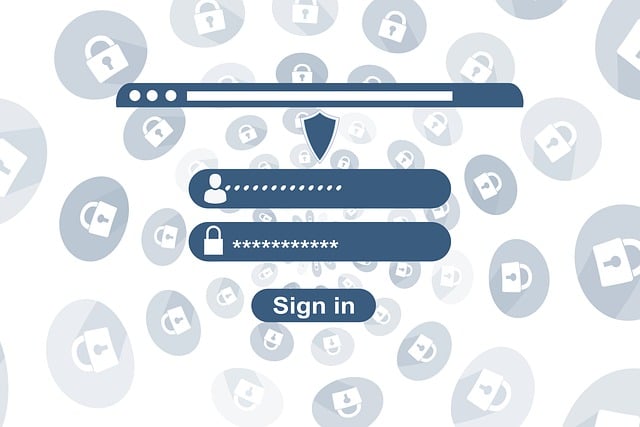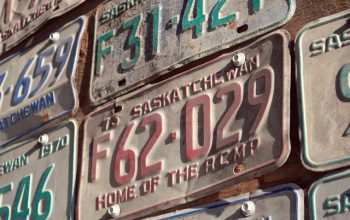To ensure you avoid fines and legal issues related to expired vehicle registration, it's important to stay informed about your state's DMV renewal requirements. You can conveniently renew your Car Tag or Motor Vehicle Registration online by visiting the official DMV website. This process is designed to save time and adhere to state regulations without the need for paperwork or in-person visits, and requires you to have your vehicle details, proof of insurance, and payment for the Renewal of Vehicle Registration Fees at hand. If your registration has been expired for a while, an in-person visit to the DMV might be necessary. Regularly checking your registration status is key for compliance and avoiding penalties. Remember, if you miss the grace period after registration expires, you'll face late fees under the Motor Vehicle Registration Renewal process. Stay diligent to maintain up-to-date records and fulfill your legal obligations for uninterrupted road use and safety.
When your vehicle registration lapses, prompt renewal is crucial to avoid fines and legal complications. Whether you’re seeking the DMV registration renewal or updating your car tag, staying current is key. This article guides you through the essential steps for motor vehicle registration renewal, including the online process and handling late fees. With clear instructions on navigating these requirements, you can ensure your registration reflects your compliance with state laws. Don’t let an oversight lead to unnecessary penalties; learn how to manage your registration renewal fees and stay legally on the road.
- Understanding the Consequences of an Expired Vehicle Registration
- Step-by-Step Guide to Renewing Your Car Tag Through Online and DMV Processes
- Navigating Late Fees and In-Person Requirements for Motor Vehicle Registration Renewal
Understanding the Consequences of an Expired Vehicle Registration

Failure to renew your vehicle registration on time can lead to a cascade of consequences, starting with fines and escalating to more serious legal implications if left unaddressed for an extended period. It’s imperative to be aware of the specific rules and regulations governing motor vehicle registration in your state. An expired registration can not only hinder your vehicle’s roadworthiness but also subject you to penalties. To mitigate such issues, it’s advisable to initiate the DMV registration renewal process as soon as possible once you receive a notification that your registration is due for renewal. This proactive approach avoids the accumulation of late fees associated with the Car Tag Renewal or Motor Vehicle Registration Renewal.
The online renewal process for Car Tag Renewal or Online Car Registration Renewal is streamlined and user-friendly, designed to accommodate busy schedules and reduce the need for in-person visits. To complete this process, you’ll need your vehicle’s specific details, proof of insurance, and payment for any applicable Renewal of Vehicle Registration Fees. This electronic method not only saves time but also ensures that your vehicle remains compliant with state regulations without the hassle of physical paperwork. If it’s been a significant amount of time since your registration lapsed, you may indeed be required to appear at a DMV office and provide any necessary documentation. Regularly monitoring your registration status through your state’s DMV portal is a prudent step to ensure compliance and avoid the repercussions of an expired vehicle registration.
Step-by-Step Guide to Renewing Your Car Tag Through Online and DMV Processes

When it comes time to renew your car tag or motor vehicle registration, utilizing either the online DMV registration renewal process or visiting a DMV office in person can be efficient ways to fulfill this requirement. To initiate the online car registration renewal process, start by accessing your state’s official DMV website. There, you will typically find a clear and straightforward option for renewing your vehicle registration. Ensure that you have all necessary documentation ready, including your current vehicle information, proof of insurance, and be prepared to pay any renewal of vehicle registration fees, along with any late fees if applicable. The online system will guide you through each step, from verifying your personal details to making secure payments. This method is often the most convenient, as it saves time and eliminates the need for in-person visits.
However, if your car tag has been expired for longer than a specified grace period, or if your state’s regulations require it, you will need to complete the vehicle registration renewal process at a local DMV office. At the DMV, a representative can assist you through the steps, which may include verifying your identity, providing necessary documentation, and making payments for any outstanding fees. This in-person interaction ensures that all of your paperwork is correctly filed and that your registration is updated accurately. It’s important to keep track of the renewal deadlines and ensure that you complete this process promptly to avoid additional penalties or potential legal complications on the road. Regular monitoring of your registration status through your state’s DMV system will help you stay current with your motor vehicle registration renewal requirements.
Navigating Late Fees and In-Person Requirements for Motor Vehicle Registration Renewal

When your vehicle’s registration has lapsed, prompt action is necessary to avoid fines and adhere to legal requirements. The DMV registration renewal process allows for an extension of validity under a grace period, but it’s prudent not to delay beyond this period. If your registration has expired, you’ll need to initiate the renewal process by providing details of your vehicle, proof of insurance, and be prepared to pay any late fees that may apply due to the Motor Vehicle Registration Renewal. These fees are instituted to encourage timely renewals and are essential for maintaining up-to-date records. The good news is that in many cases, you can complete the Car Tag Renewal online through an Online Car Registration Renewal Process, which streamlines the procedure and saves time. However, if your registration has been expired for a significant duration, state regulations may necessitate a visit to a DMV office in person to complete the renewal process. It’s important to check the status of your vehicle’s registration regularly to ensure you remain compliant with state laws and avoid any disruptions on the road due to an invalidated tag. Staying current with the Renewal of Vehicle Registration Fees is not just a legal obligation but also a safety measure for all motorists.
To ensure uninterrupted road usage and adherence to legal requirements, promptly renewing your DMV registration is crucial. Overlooking this task can lead to avoidable fines and complications. Fortunately, with the online car registration renewal process available, updating your Car Tag Renewal or Motor Vehicle Registration Renewal has become a straightforward endeavor for most states. This streamlined Online Car Registration Renewal Process not only saves time but also ensures compliance with state laws. While some instances may necessitate an appearance at a DMV office due to extended lapses in registration, maintaining awareness of your vehicle’s status is key. Regular checks and timely renewals will help you sidestep any potential hassles and keep your driving privileges intact without incurring additional Renewal of Vehicle Registration Fees.



